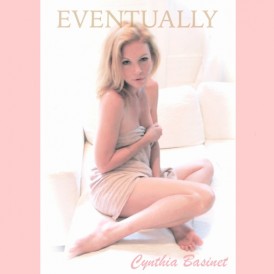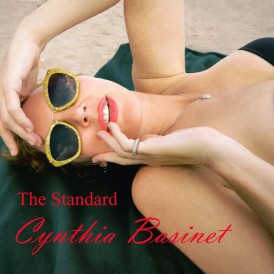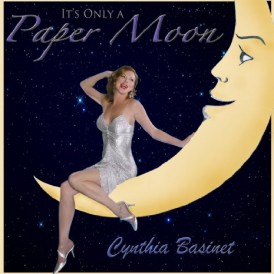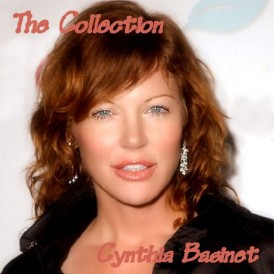RIGHTS:
To the World’s Unsung Feminists, We Salute You!
Katherine Stapp
NEW YORK, Jun 29 (IPS) – What do a Muslim advocate for battered women, an African American congresswoman, and the singer of a hit cover of the song “Santa Baby” have in common?
All three, and 37 others from the United States, are among the 1,000 women from around the world who have been collectively nominated for this year’s Nobel Peace Prize, as part of a novel project meant to highlight their work for a better future.
Noting that only 12 women have ever won since the peace prize was first awarded in 1901, the Swiss-based project — simply called 1,000 Women for the Nobel Peace Prize 2005 — is using three proxies to represent the thousand nominees — themselves representing the “millions of women (who) work day in day out to promote peace.”
By contrast, 80 men and 12 organisations have received the prestigious award.
“The nominated women all commit themselves daily to the cause of peace and justice, often under the most difficult circumstances,” the organisers said in a statement released Wednesday.
The Nobel Prize statutes limit simultaneous awards to three individuals at the most, or to an organisation.
The U.S. nominees include Hadayai Majeed, whose “vision is both simple and huge: gives Muslim women the tools to change their climate by changing themselves.”
In 1977, Hadayai founded the Baitul Salaam Network, Inc., whose goal is to end silence about domestic violence and to help abused Muslim women and children obtain shelter, food and clothing. The organisation also teaches strategies for self-sufficiency and personal confidence.
“Just after we opened, a child of one of our residents danced in the middle of the floor, dived head-first into the toy box and squealed with joy. I knew then we were doing the right thing,” she says on the project’s website.
Nominee Cynthia Basinet, while best known as a jazz singer, has also been involved in drawing attention to the plight of some 200,000 refugees living in the western Sahara desert. In May 2001, she travelled to the Algerian camps and performed for the people there, who are more than 80 percent women and children.
“Displaced societies are of value,” according to Basinet. “Their issues are our issues.”
And Cynthia McKinney, a Georgia congresswoman who has been one of the most outspoken critics of the U.S. invasion and occupation of Iraq, has successfully fought for legislation to extend health benefits for Vietnam War veterans and victims of Agent Orange, and sponsored a bill to end the use of depleted uranium weapons.
As a ranking member of Human Rights Subcommittee, McKinney urged the United Nations to investigate the Rwanda genocide. She lost her seat for one term following widely reported comments — which McKinney apparently never made — accusing the administration of having advance warning of the Sep. 11, 2001 attacks, but was returned to office in 2004.
“We really believe that a multitude of people can outweigh any special interest every time,” she said in a victory speech last November. “That media magic has little persuasion over an informed people. That we as a people are way more powerful when we turn to each other and not on each other.”
“We are way more powerful when we turn to each other and not on each other, when we celebrate our diversity, focus on our commonality, and together, tear down the mighty walls of injustice,” she said.
The 1,000-woman project takes a broad view of peace based on human security, which includes nutrition, health, the environment and human rights. In selecting the nominees, special emphasis was placed on unknown grassroots activists who do not exercise any coordination function, but do direct and active peace work within their own immediate regions.
So while some of the nominees already have high profiles, like Noeleen Heyzer, head of the United Nations Development Fund for Women, others do not.
Take Rev. Mother Mary Elizabeth Thunder, founder of Thunder Ranch and the Blue Star Church in West Point, Texas. Thunder has played key roles at various Wolf Songs, international gatherings of indigenous peace elders.
In 1997, she was invited by the Dalai Lama to travel to France and speak about peace and women at the Spiritual United Nations, an international gathering of spiritual representatives.
“I want to remind people that in the indigenous traditions, women are very important,” she told an audience of 8,000 people on that trip. “Not because we are told we are important but because we know that since forever and always, we have had the power and the capacity to give birth, raise women and men and to take care of the earth.”
“It is today that I thusly give celebration to all the women on Earth. I would like to ask my sisters to give up the thoughts and actions of the word victim. We are no longer victimsàWe are strong!” Thunder declared.
Economic and social justice are also the main concerns of Chicana (U.S.-born Latina) activist, author and educator Elizabeth (Betita) Martinez, who has published six books and many articles on grassroots movements in the Americas.
“If being a writer implies sensitivity to the complex reality of human existence, then how can one not seek to end the conditions that suffocate all but a tiny number of those who walk this earth?” she asks.
Other nominees include Charlotte Bunch, founder and executive director of the Centre for Women’s Global Leadership, and Anne Firth Murray, who created the Global Fund for Women, the largest foundation in the world focused exclusively on women and girls.
Since its inception in 1987, the fund has granted more than 35 million dollars to 2,500 women’s groups in 180 countries.
The 1,000-women project was launched in 2003. And last year the winner of the Nobel Peace Prize was a woman: Iranian human rights activist Shirin Ebadi.
(END/2005)












